- You are here: Home
- Services
- Exosome Research Services
- Exosome Application
Services
-
Cell Services
- Cell Line Authentication
- Cell Surface Marker Validation Service
-
Cell Line Testing and Assays
- Toxicology Assay
- Drug-Resistant Cell Models
- Cell Viability Assays
- Cell Proliferation Assays
- Cell Migration Assays
- Soft Agar Colony Formation Assay Service
- SRB Assay
- Cell Apoptosis Assays
- Cell Cycle Assays
- Cell Angiogenesis Assays
- DNA/RNA Extraction
- Custom Cell & Tissue Lysate Service
- Cellular Phosphorylation Assays
- Stability Testing
- Sterility Testing
- Endotoxin Detection and Removal
- Phagocytosis Assays
- Cell-Based Screening and Profiling Services
- 3D-Based Services
- Custom Cell Services
- Cell-based LNP Evaluation
-
Stem Cell Research
- iPSC Generation
- iPSC Characterization
-
iPSC Differentiation
- Neural Stem Cells Differentiation Service from iPSC
- Astrocyte Differentiation Service from iPSC
- Retinal Pigment Epithelium (RPE) Differentiation Service from iPSC
- Cardiomyocyte Differentiation Service from iPSC
- T Cell, NK Cell Differentiation Service from iPSC
- Hepatocyte Differentiation Service from iPSC
- Beta Cell Differentiation Service from iPSC
- Brain Organoid Differentiation Service from iPSC
- Cardiac Organoid Differentiation Service from iPSC
- Kidney Organoid Differentiation Service from iPSC
- GABAnergic Neuron Differentiation Service from iPSC
- Undifferentiated iPSC Detection
- iPSC Gene Editing
- iPSC Expanding Service
- MSC Services
- Stem Cell Assay Development and Screening
- Cell Immortalization
-
ISH/FISH Services
- In Situ Hybridization (ISH) & RNAscope Service
- Fluorescent In Situ Hybridization
- FISH Probe Design, Synthesis and Testing Service
-
FISH Applications
- Multicolor FISH (M-FISH) Analysis
- Chromosome Analysis of ES and iPS Cells
- RNA FISH in Plant Service
- Mouse Model and PDX Analysis (FISH)
- Cell Transplantation Analysis (FISH)
- In Situ Detection of CAR-T Cells & Oncolytic Viruses
- CAR-T/CAR-NK Target Assessment Service (ISH)
- ImmunoFISH Analysis (FISH+IHC)
- Splice Variant Analysis (FISH)
- Telomere Length Analysis (Q-FISH)
- Telomere Length Analysis (qPCR assay)
- FISH Analysis of Microorganisms
- Neoplasms FISH Analysis
- CARD-FISH for Environmental Microorganisms (FISH)
- FISH Quality Control Services
- QuantiGene Plex Assay
- Circulating Tumor Cell (CTC) FISH
- mtRNA Analysis (FISH)
- In Situ Detection of Chemokines/Cytokines
- In Situ Detection of Virus
- Transgene Mapping (FISH)
- Transgene Mapping (Locus Amplification & Sequencing)
- Stable Cell Line Genetic Stability Testing
- Genetic Stability Testing (Locus Amplification & Sequencing + ddPCR)
- Clonality Analysis Service (FISH)
- Karyotyping (G-banded) Service
- Animal Chromosome Analysis (G-banded) Service
- I-FISH Service
- AAV Biodistribution Analysis (RNA ISH)
- Molecular Karyotyping (aCGH)
- Droplet Digital PCR (ddPCR) Service
- Digital ISH Image Quantification and Statistical Analysis
- SCE (Sister Chromatid Exchange) Analysis
- Biosample Services
- Histology Services
- Exosome Research Services
- In Vitro DMPK Services
-
In Vivo DMPK Services
- Pharmacokinetic and Toxicokinetic
- PK/PD Biomarker Analysis
- Bioavailability and Bioequivalence
- Bioanalytical Package
- Metabolite Profiling and Identification
- In Vivo Toxicity Study
- Mass Balance, Excretion and Expired Air Collection
- Administration Routes and Biofluid Sampling
- Quantitative Tissue Distribution
- Target Tissue Exposure
- In Vivo Blood-Brain-Barrier Assay
- Drug Toxicity Services
Exosome Application
Exosomes derived from diverse cells have therapeutic effects against cellular disorders and organ injury, which are considered as promising agents for diseases therapy. Exosomes contain proteins, RNAs and DNA that could be involved in transmitting signals to recipient cells. Furthermore, they can be crucial vehicles for drug formulations delivery and gene therapy.
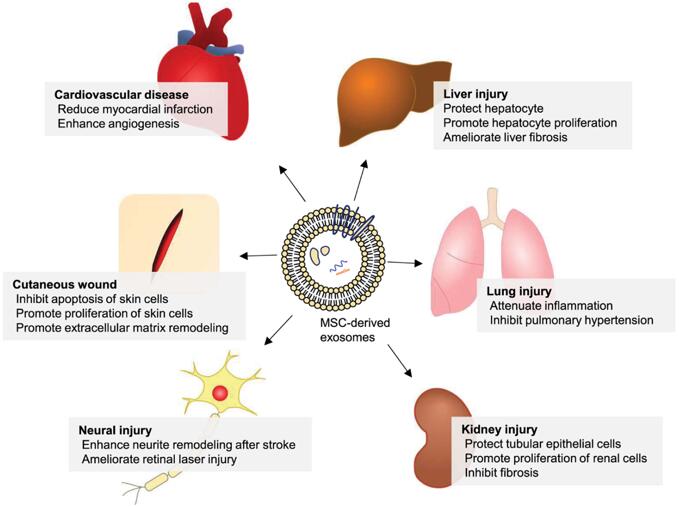 Figure 1 Therapeutic application of mesenchymal stromal cell (MSC)-derived exosomes
Figure 1 Therapeutic application of mesenchymal stromal cell (MSC)-derived exosomes
Exosomes facilitate the delivery of proteins or nucleic acids into target cells. Creative Bioarray develops a reliable protocol to conveniently place plasmid DNA and RNAs (mRNA, siRNA, and miRNA) into isolated exosomes with high efficiency, and subsequently deliver these exosomal species to recipient cells.
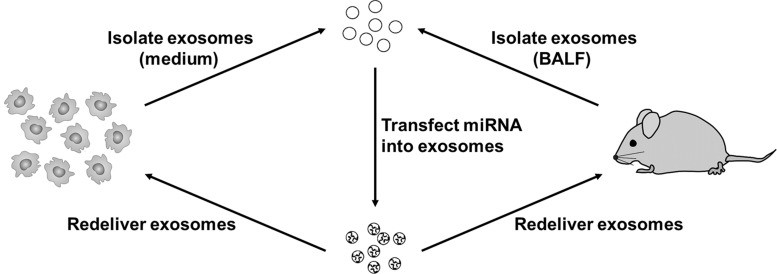 Figure 2 Strategy to deliver miRNA-loaded exosomes in vivo and in vitro. Schematic experimental design for delivering miRNA-loaded exosomes.
Figure 2 Strategy to deliver miRNA-loaded exosomes in vivo and in vitro. Schematic experimental design for delivering miRNA-loaded exosomes.
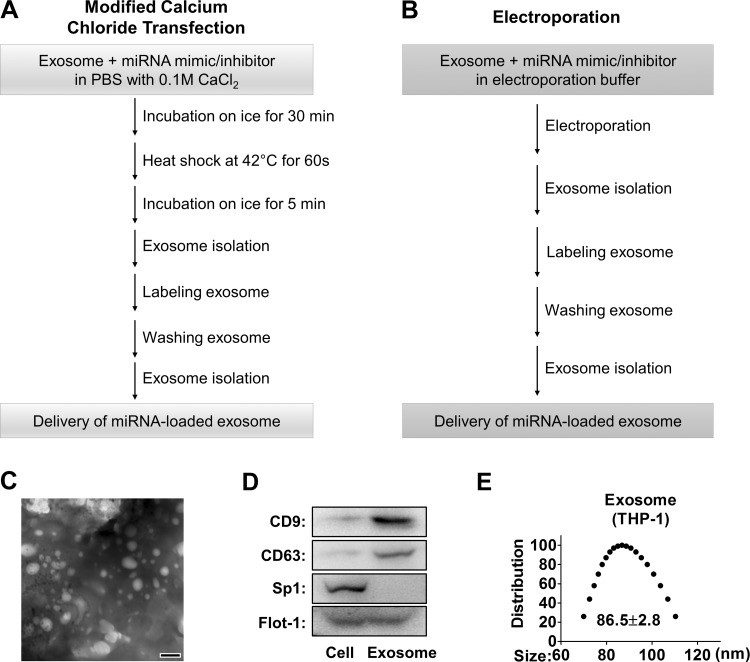 Figure 3 Characterization of exosomes derived from THP-1 macrophages.
Figure 3 Characterization of exosomes derived from THP-1 macrophages.
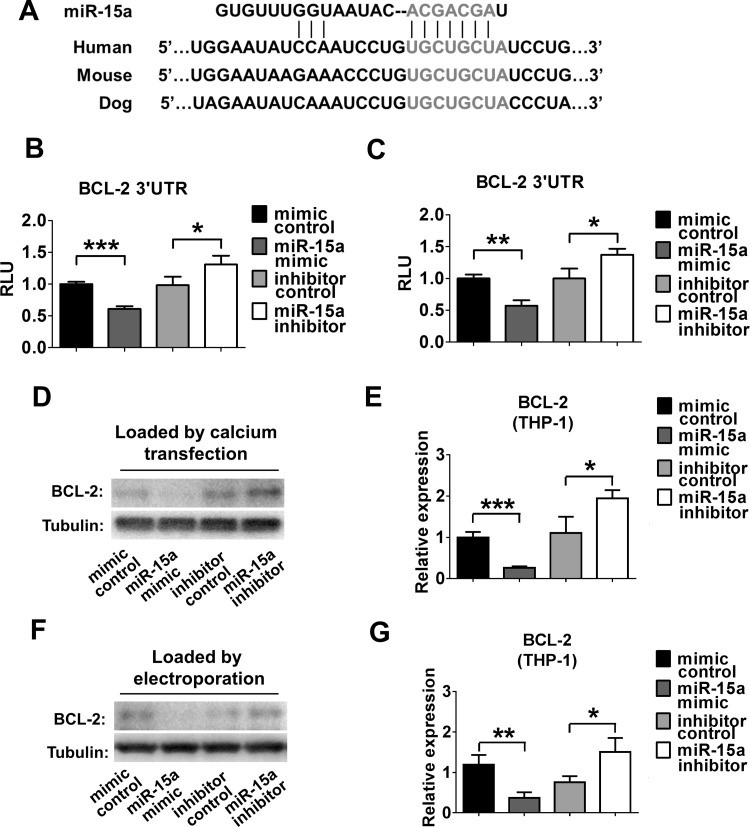 Figure 4 MiR-15a mimics or inhibitors delivered via exosomes were functional in THP-1 macrophages.
Figure 4 MiR-15a mimics or inhibitors delivered via exosomes were functional in THP-1 macrophages.
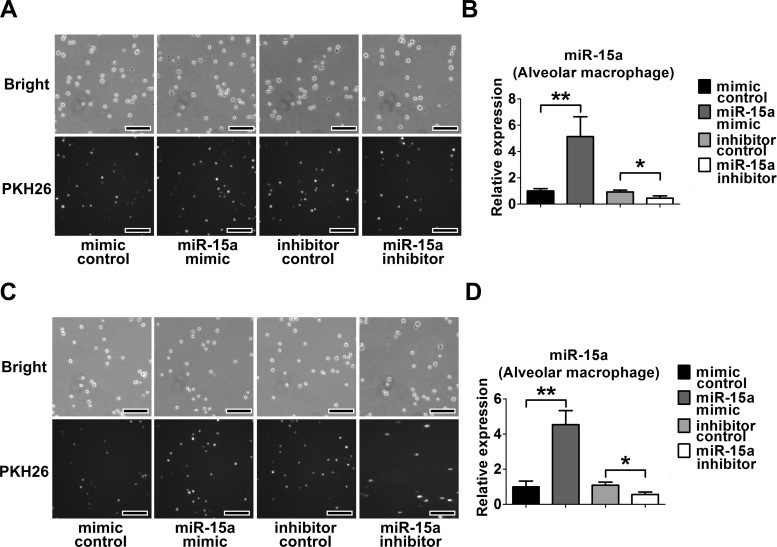 Figure 5 Delivery of miR-15a mimic or inhibitor-loaded exosomes to the alveolar macrophage in vivo.
Figure 5 Delivery of miR-15a mimic or inhibitor-loaded exosomes to the alveolar macrophage in vivo.
With specialized scientific support, Creative Bioarray offers a complete set of services for exosome application including, but not limited to:
- Exosome Transfection (siRNA, microRNA, mRNA or plasmid DNA)
- Exosome Labeling ( such as RNA, Protein, and Membrane)
- Exosome Targeting (delivering species-loaded exosomes into recipient cells)
- RNA Packaging into Exosomes
- Protein Packaging into Exosomes
Creative Bioarray is dedicated to working closely with your team to accelerating your exosome project with the highest quality and the most competitive price. If you are interest in our exosome application service, please let us know what you need and contact us. We look forward to working with you in the future.
Reference
- Zhang, D.; et al. Enrichment of selective miRNAs in exosomes and delivery of exosomal miRNAs in vitro and in vivo. American journal of physiology-Lung cellular and molecular physiology. 2017, 312(1): L110-L121.
Explore Other Options
For research use only. Not for any other purpose.

